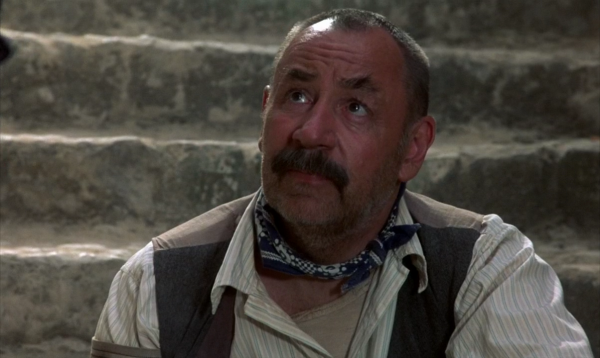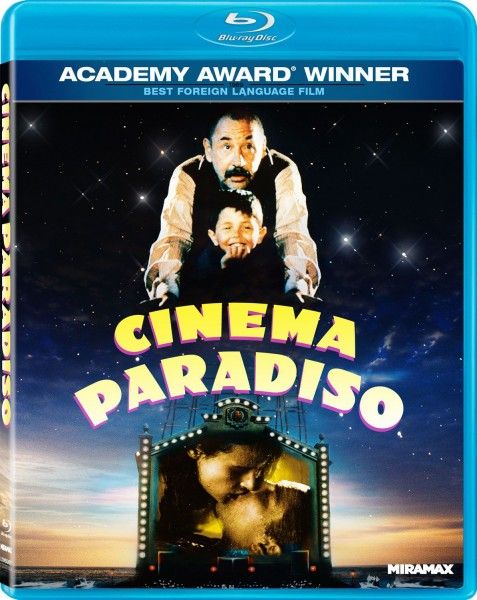The mark of a truly classic film is that its themes and subject matter are timeless, relatable to each successive generation even if the direct circumstances have passed. Cinema Paradiso falls perfectly into that mold. I had often heard that Cinema Paradiso was cinema’s greatest ode to motion pictures, and such could not be more accurate. Hit the jump for our review of Cinema Paradiso on Blu-ray.
The film follows Salvatore “Toto” Di Vita as he grows from a young boy (Salvatore Cascio) to a teenager (Marco Leonardi) under the tutelage of the projectionist at the local movie theatre, Alfredo (Philippe Noiret). As a young boy Salvatore would sneak into the movies until Alfredo agreed to teach him the trade. When a projector fire burns down the Cinema Paradiso and takes Alfredo’s sight, a local lottery winner builds a new theater for which Salvatore becomes the new projectionist. Aflredo continues to guide Salvatore through his teenage years and his first love, Elena (Agnese Nano). When Elena’s family moves away and she is lost to Salvatore, Alfredo encourages the young man to leave their town and find his passions, never to return. Salvatore keeps this promise until he learns of Alfredo’s death many years later, and he returns as a successful filmmaker (Jacques Perrin) to confront everything he had left, including the abandoned Cinema Paradiso on the eve of its destruction.
Cinema Paradiso is a beautifully poignant movie about love for family (whether that be blood or adopted, however informally), romantic love and, of course, love for the movies. The Paradiso is the center of the town’s entertainment, the people’s escape, a place they come to both laugh and cry. The destruction of the derelict theatre at the end of the film, Salvatore’s spiritual and one-time all-but-physical home, is the perfect metaphor for the changing times of our modern world and the sad death to our individual and collective societal childhoods that come with such passage. The movie came out in 1988; when Salvatore is told that the Paradiso had been closed due to the increased competition from TV and video and the change in audiences they have wrought, I could not help but think how even more the case that is today with Blu-ray, internet, digital production and distribution, and every other fragment of the modern industry.
The movie won countless awards, including the Oscar for best foreign film and multiple BAFTAs. The casts’ performances are moving across the board, while Ennio Morricone’s score is delightful. The cinematography and production design are absolutely beautiful. It is a truly a film in which every element works in harmony to create a perfect whole.
Considering that most Blu-ray releases tend to be overloaded with bonus features, when I read the back of the box and saw that the only inclusion was the theatrical trailer, I was initially concerned that this release was nothing more than a catalog dump with equivalently poor quality. Fortunately, such was not the case. If the movie has not been restored, the disc must have been mastered from a fresh transfer off a new or extremely clean print. Video was all but pristine—only marred by a few specs of the sort associated with reel changes—with vibrant colors, and the audio was clean and clear to match.
In summation, Cinema Paradiso truly remains an ode to the magic of movies.



